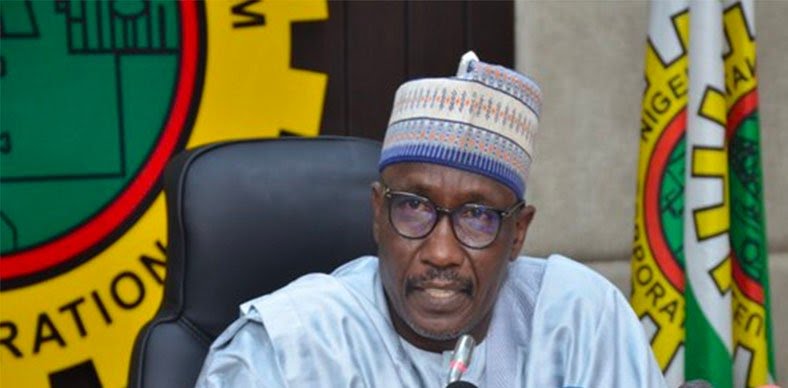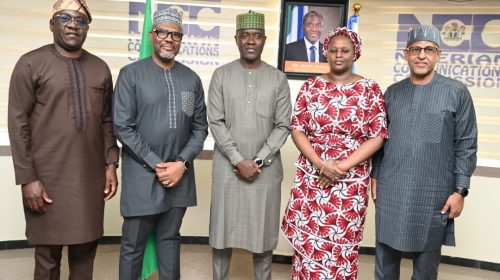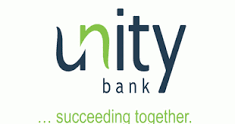Kyari: Nigeria Will Stop Importing Petroleum Products By Mid-2023

The Group Chief Executive Officer (GCEO) of the Nigerian National Petroleum Company (NNPC) Limited, Mallam Mele Kyari, yesterday said the country would end importation of petroleum products by June 2023.
He also said the Lagos-based 650,000 barrels per day Dangote Refinery under construction would start producing petrol by the middle of next year, with a capacity of 50 million litres daily.
Kyari made the assertions yesterday during a media briefing at the State House, Abuja, noting that the combination of outputs from the Dangote refinery and the national oil company’s four refineries would, “eliminate any importation of petroleum products into this country.”
According to him, “Even if all our four refineries in three locations are operating at 90 per cent of installed capacity, they will only be able to raise 18 million litres of petrol.
“That means, even if all of them are working today, you would still have a net deficit of premium motor spirit (PMS) to import into this country,” he added.
The GCEO explained that, as Nigeria’s population, middle class and demand grew, so did the amount of petrol required in the country
He reaffirmed that NNPC owns 20 per cent of the Dangote Refinery and has first right of refusal to supply crude oil to the plant.
“But we saw this energy transition challenge coming. We knew that time will come where you would look for people to buy your crude and you will not find,” he said.
“And that means we have locked down ability to sell crude oil for 33,000 barrels minimum by right for the next 20 years and by right also we have access to 20 percent of the production from that plant,” Kyari explained.
The NNPCL boss informed his audience that the Lagos-based 650,000 barrels per day Dangote refinery under construction would start producing petrol by the middle of next year, with a capacity of 50 million litres per day, adding that, “the combination of that and our ability to bring back our refinery will eliminate any importation of petroleum products into this country next year. You would not see any importation into this country next year.
“This is very practical. As a matter of fact, when we are done with our own refineries and the Dangote refinery, there remain other small initiatives that we are doing, small modular condensate refineries that we are building
If that happens and we are very optimistic it will happen, you would see that this country will now be a net exporter.
“As a matter of fact, it will be a hub for the export of petroleum products, not just to the West African sub-region. This will happen. The flow of supply will change by the middle of next year, it will change. You will not need the importation of petroleum products into this country by the middle of next year.”
However, Kyari alleged that stolen crude oil products are now stored in places of worship such as churches and mosques, with the consent of the religious leaders, members and neighbours.
Lamenting that the phenomenon had become widespread and permeating several aspects of society, he revealed that at least 295 illegal connections were spotted on a 200 kilometer stretch of pipeline in one instance.
Kyari said, “As you may be aware because of the very unfortunate acts of vandals along our major pipelines from Atlas Cove, all the way to Ibadan, and all others connecting all the 37 depots that we have across the country, none of them can take delivery of products today.
The reason is very simple. For some of the lines, for instance, from Warri to Benin, we haven’t operated for 15 years. Every molecule of product that we put, gets lost. Do you remember the sad fire incident close to Sapele, that killed so many people? We had to shut it down, and as we speak, we have a high level of losses on our product pipeline.
“You remember in Lagos, when a fire outbreak happened on one of our pipelines? We discovered that some of the pipelines were actually connected to individuals’ homes. And not only that, with all sensitivity to our religious beliefs, some of the pipelines and some of the products that we found are in churches and mosques.”
The GCEO added that such spate of vandalism prompted the NNPC to shut down its entire network of pipelines conveying petroleum products nationwide.
According to him, “When we say we are losing several 700,000 barrels of crude oil daily, we mean it. This is opportunity loss. There is no company that will produce oil and then you lose 80 percent of that and continue to produce the oil.
“So we deliberately shut down the pipelines whenever we see these infractions getting to a limit that we cannot manage. So that means as we speak today, we know for sure, there’s at least 700,000 barrels that we could have produced that we can’t because we cannot guarantee the safety of the pipeline.”
THISDAY







Leave a Reply